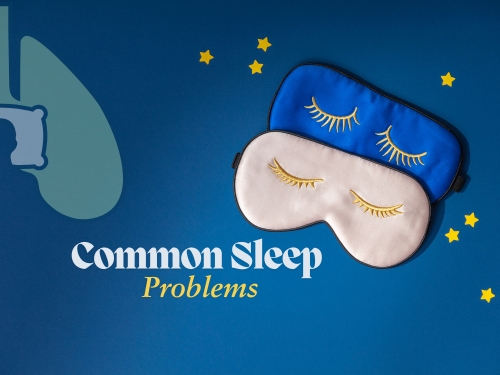Insomnia: Causes, Symptoms, and Treatment Options
Insomnia is when it is hard to get to sleep or stay asleep. It can be due to discomfort from an illness, it can be feeling upset or perhaps sad or stressed. In these cases, what needs to be done is to get rid of the cause. But in other cases, there is no obvious cause. Here it can help to adopt good sleep habits. If this is not enough, there are more complex treatments. One of these is known as cognitive behaviour therapy (CBT). Speak to your GP or sleep specialist about this.
Snoring: Why It Happens and How to Reduce It
Snoring is a common problem. It affects up to 40% of men and 20% of women on a regular basis. It gets worse with age and weight gain. Someone who snores can disturb their partner’s sleep. This can cause distress for both of them. As well, many regular snorers also have obstructive sleep apnoea.
Obstructive Sleep Apnoea (OSA): Symptoms, Risks, and Treatments
This means losing your ability to breathe freely. It happens over and over while asleep. It is caused by a narrow, floppy throat. Most people who have sleep apnoea snore too. The period when the sleeper has trouble breathing ends with them waking up. This arousal is often very brief with no memory of it. But arousing over and over like this disrupts sleep and causes excessive tiredness during the day. There are treatments that work. These include weight loss, cutting down on alcohol, dental devices, and continuous positive airway pressure (CPAP) therapy.
Sleep Hypoventilation: Causes, Dangers, and Treatment Solutions
The muscles that we use to breathe need to be told to do so by the brain. When we sleep, there is less drive to do this from the brain. This means that people who have breathing muscles that are weak or under excessive load from severe lung disorders or obesity may not breathe strongly enough during sleep. This is known as sleep hypoventilation. With no treatment, this can lead to breathing and heart failure during the day. Devices to help breathing during sleep will work in treating this. This treatment is called non-invasive positive pressure ventilation.
Restless Legs Syndrome (RLS): Symptoms, Triggers, and Remedies
People with restless legs syndrome have uncomfortable feelings in the legs. The only way they can stop these is to move their legs. How severe it is tends to vary over the day. The worst time is from the evening through to the early hours of the morning. For some people, it can make their sleep a lot worse. There are several medications that can stop it.
Bruxism (Teeth Grinding): Effects on Sleep and Prevention
This involves grinding of the teeth during sleep. It is quite common. If not treated, it can cause permanent damage to the teeth. Sometimes it causes jaw discomfort. But often, the people who have it aren’t aware of anything. Using dental guards can protect your teeth.
Narcolepsy: Understanding Symptoms, Diagnosis, and Treatment
About 1 in 2000 people has narcolepsy. It relates to unstable switching between being awake and asleep. People who have it can feel sleepier more often than they would like, but may have disrupted sleep as well. People with it can also hallucinate. This happens when falling asleep or waking up. Sometimes when they wake up, they can’t move for a moment. This is called sleep paralysis. This can be diagnosed in a hospital sleep laboratory. It normally requires an overnight stay followed by a day testing period.
About Us
At RSDC we have a particular interest in quick approach and triaging patients with suspected lung malignancy, management of pleural diseases, sleep disorders of obstructive sleep apnoea and other more complex sleep disorders, airways disease including asthma and COPD.
We use a comprehensive approach to interstitial lung disease in addition to occupational and environmental lung disease.

